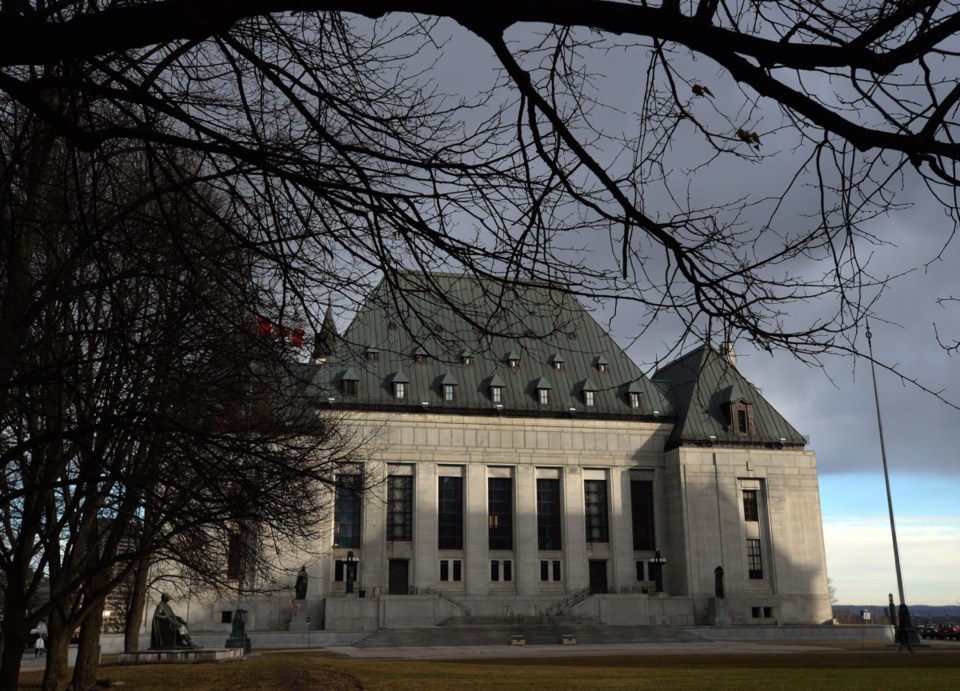 Victoria city council doesn’t have a prayer.
Victoria city council doesn’t have a prayer.
Nor, for that matter, do the other 12 capital region municipalities.
They haven’t, in fact, started their meetings with a prayer for so long that many can’t remember when they did.
They do have the occasional aboriginal blessing, though.
Are those still allowed? Dunno.
And if you can’t have prayers in city hall, why do they have them in the legislature?
These are questions politicians might be forced to answer soon.
Municipal officials across Canada are scratching their heads (as opposed to bowing them) as they try to understand the impact of Wednesday’s Supreme Court of Canada decision barring the council in Saguenay, Que., from beginning its meetings with prayers.
The practice had been challenged by an atheist and a secular-rights group, who took on the city’s devoutly Catholic mayor.
The court ruled that to be neutral, the state must not only refrain from hindering or favouring one religion over another, but must take the same approach to non-believers: “When all is said and done, the state’s duty to protect every person’s freedom of conscience and religion means that it may not use its powers in such a way as to promote the participation of certain believers or non-believers in public life to the detriment of others.”
So, no prayers, even the ones that read like the lyrics to We Are The World.
“Essentially, the court is basically putting forward a very strong statement, not so much on freedom of religion but freedom from religion,” law professor Errol Mendes told the Canadian Press.
Mendes teaches in Ottawa, where city council decided Wednesday to suspend its brief opening prayer (“Almighty God, let us work together to serve all our people”) until it can sort out what the court decision requires.
This all seems a long way from the days when public expressions of devotion were not only unquestioned, but mandatory.
Baby Boomers grew up starting each school day mouthing the Lord’s Prayer, (whether they believed in it or not), but that practice faded away in the 1970s and disappeared entirely after a B.C. Civil Liberties Association lawsuit brought changes to the School Act in 1989.
Bible readings before council and school board meetings disappeared, too, though no-religion-in-particular prayers remain in some communities.
Councils in Oshawa and Mississauga actually say the Lord’s Prayer.
Halifax’s council still prays, but in a non-denominational way. Maple Ridge stopped doing so four years ago, but substituted a moment of reflection before council meetings.
Similarly, Vancouver city council followed Mayor Gregor Robertson’s 2008 election by dropping its opening prayer in favour of a welcoming message that some still refer to as, well, the prayer. (In 2011, the Vancouver Courier reported on a six-minute effort in which Coun. David Cadman didn’t say a word, but “projected a still image of a giant Mother Earth on a screen in a dimly lit council chambers. He accompanied the image with dreamy music in which the chanteuse repeated ‘beautiful world, beautiful world’ for what seemed like an eternity.”)
A more traditional approach is taken in the House of Commons, where each day begins with a standard invocation read partly in English and partly in French.
Here in B.C., a religious leader of some description opens each session of the legislature with a prayer on throne speech day.
After that,
MLAs of various faiths take turns opening each day with prayers that generally steer clear of controversy, though in 2004, Kamloops Liberal Kevin “Boombox” Krueger caught hell, as it were, for thanking God for the back-to-work legislation that ended a hospital strike.
Krueger also thanked the Almighty for the provincial election results in 2001; we don’t know if God was amused, but the New Democrats weren’t.
Krueger’s efforts were the exception, though. Generally speaking, you would have to work really, really hard to be offended by the content of prayers uttered at government proceedings.
They’re usually as blandly innocuous as an airline magazine, little more than an expression of shared values, and motherhood ones at that — but that is neither here nor there when the argument is that assertions of belief, any belief, are inappropriate.
In any case, the court has drawn a new line in the sand.



